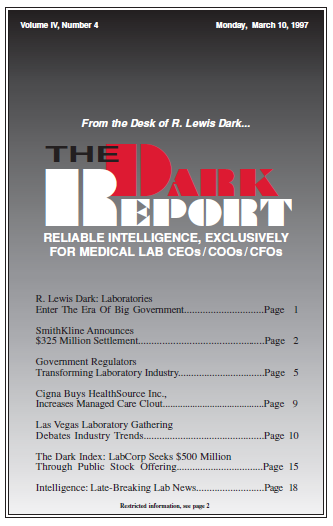CEO SUMMARY: Medicare/Medicaid regulators get serious about laboratory billing and reimbursement practices. Industry observers say it represents a major shift and will have immense financial and operational impact on every clinical laboratory in the United States. FOLLOWING YEARS of “benign neglect” toward Medicare billing practices, regulators will now scrutinize laboratory reimbursement activities with full vigor. …
Government Regulators Transforming Lab Industry Read More »
To access this post, you must purchase The Dark Report.


